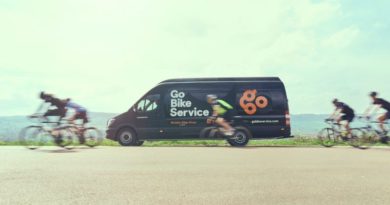e-Scooters in the UK modal mix: Business models and operational guidelines
In the third installment of CI.N’s e-Scooter series reporting from the webinar organised by Landor Links, which brought together active travel experts and local authority representatives to discuss the e-Scooter’s place in the UK’s modal mix, the focus is on operator business models, membership and operational guidelines.
In light of rental trials rolling out across the UK, the discussion centred around four key topics: speed and safety; impacts on active travel; Operator business models and operational guidelines; and management powers for local authorities. With electric scooter firms queuing up for UK street space, CI.N listens in on potential guidelines operators may have to comply with during and after the trials, as well as successful business model examples.
Chair of the webinar and CoMoUK Chief Executive, Richard Dilks, took the lead in this part of the discussion. His views were supplemented by a number of polls throughout the webinar to gauge the opinions of the audience in light of the points raised.
Read up on what the experts had to say on scooter safety in light of rental trials in the first article in the series, and gauge their thoughts on the impacts e-Scooters could have on other active travel forms in the last installment.
Business models and operational guidelines
Dilks started off this part of the webinar with a reminder to panellists and audience members alike that it is worth remembering these are still very early days for the UK in terms of welcoming e-Scooters on to our streets, and having e-Scooter trials in rental format is very different to having them fully legalised.
“What we have now is not necessarily what we will have next year,” he said. “We will probably end up with something a bit different to now, in terms of vehicle design, speed, weight, distribution, parking and pick up, as well as operational guidance where e-Scooters will be allowed to go.”
In terms of business models, there is a bigger range than one might first realise, Dilks suggested. Some homegrown British players already have thousands of scooters operating in multiple countries and cities around the world. However, this spectrum of e-Scooter players will quickly narrow down as trial areas get underway, he said.
“Regarding docked or dockless e-Scooter share, I think the reality will be somewhere in the middle for trial areas,” Dilks stated. “The details are to be thrashed out with DfT and local authorities. Intensive version of docked schemes, like Santander bike share scheme, are expensive and time-intensive to set up, so speed regarding Covid response timings dictate e-Scooter trial areas can’t be like this immediately. Similarly, there is a lot of focus on where these things are parked.”
Dilks believes there is a big impetus on local authorities to have control over this, through geofencing capability, and on a street level, places to put e-Scooters when they are not in use.
He continued: “I think it’s a consensus view now which maps with bike share that something along those lines is the way to go, and coming together as allies to minimise harms to users but also non-users.”
Dilks also spoke about membership models for scooter rental schemes, projecting that the UK will see various models of user membership involving fees to join or use the e-Scooters through rental schemes, which learnings can be taken from during the trials over the next year as to which is more successful. Some providers are also looking at providing more long-term loans, such as a week period at a time, for those who live further out of the cities or in rural areas.
Regarding operational guidance the Government has set out on its website, the top level covers some areas but leaves leeway on many others for local authorities to adapt.
“The Government has been fairly permissive in line with the Covid response,” said Dilks. “I don’t think we should believe this may be what scooters will look like in the UK long-term. Vehicles come in, we learn from them, and then we legislate to what vehicle is actually wanted and how they should be used.
“There are tweakable things for local authorities such as geofencing and varying speed caps in different areas. We need to input all the data from the trials and pull together a paper on safety and other factors to continue to have a positive dialogue between authorities and operators on key aspects.
“The most important thing is to learn from these trials if we are to have a significant impact on modal shift and the climate crisis, as well as the Covid recovery.”
Dilks’ presentation was followed by a poll put out to the webinar audience to gauge their opinions on the topic. A consideration high up on many active travel experts’ agenda, the first poll asked where e-Scooters should be permitted to park. 69% of respondents said e-Scooters should be allowed to park in docking stations only, while only 17% were in favour of a dockless model which would see e-Scooters parked on pavements. 14% of the audience said they weren’t sure, giving a good indication of the mixed stance many involved in scooter discussions have about docked vs dockless operational models.
A second poll asked the audience where they thought the best place to pilot e-Scooter schemes is. An overwhelming 87% voted for inner city and urban areas, while only 9% chose rural and suburban areas. An identification, then, of the difficulties many perceive in influencing modal shift outside of cities, despite the reasoning that rural areas actually may need a larger shift to active travel options as a result of higher car use, and less access to fast, connected public transport. 2% of people voted for private land only.
The third poll asked the audience whether they are thinking of using an e-Scooter in the next 12 months. A slim majority (43%) said no, while 39% of people said they would consider using a hire scooter. A further 9% said they are thinking of using their own e-Scooter, while the same number remained on the fence and were unsure whether they would use one.
CI.N is covering the other topics touched on in the webinar in a series of in-depth articles, examining the influence e-Scooters could have on the UK’s future modal mix. Read what the panel thought of e-Scooters and their safety implications, and their opinions on the impacts e-Scooters could have on other active travel forms.



